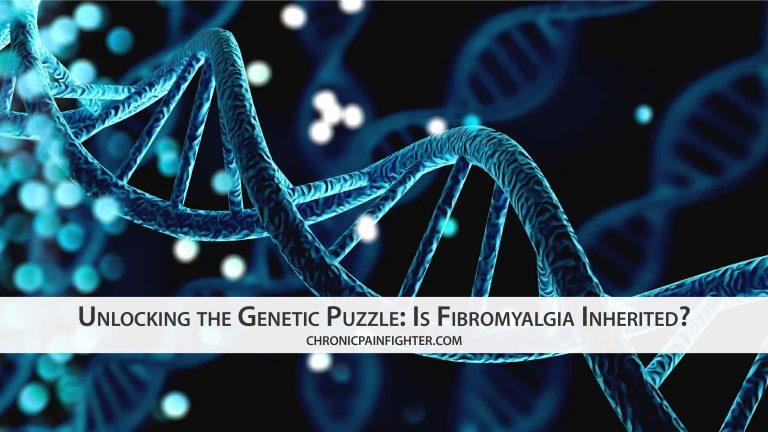Fibromyalgia, a multifaceted condition characterized by widespread pain, fatigue, and cognitive difficulties, continues to intrigue researchers due to its intricate origins. One intriguing aspect of fibromyalgia research revolves around the potential hereditary link to the condition. In this comprehensive exploration, we delve into the current scientific findings on the genetic aspects of fibromyalgia, shedding light on its familial patterns, genetic foundations, and implications for individuals with a family history of the disorder.
Exploring Genetic Influences in Fibromyalgia
Evaluating Evidence from Family and Twin Studies
Research examining the clustering of fibromyalgia within families suggests a significant genetic role in its development. Moreover, studies have shown that individuals with a first-degree relative diagnosed with fibromyalgia are more likely to experience the condition themselves. Notably, twin studies have highlighted the genetic influence on fibromyalgia, with identical twins demonstrating a higher chance of both twins having fibromyalgia compared to fraternal twins.
Understanding Genetic Variants Associated with Fibromyalgia
Recent scientific investigations have identified specific genetic variations linked to an increased susceptibility to fibromyalgia. Variants within genes responsible for pain processing, neurotransmitter regulation, and immune responses have emerged as potential contributors to the onset of the condition. These genetic alterations, in conjunction with environmental factors, may shape an individual’s predisposition to fibromyalgia.
Shedding Light on Hereditary Risk Factors
Unpacking the Role of Family History
Individuals with a family history of fibromyalgia face an elevated risk of developing the condition, pointing towards a hereditary predisposition. Additionally, genetic susceptibility, combined with shared environmental factors among family members, may underlie the susceptibility to fibromyalgia across generations. Common lifestyle choices, stressors, and environmental exposures within families could further heighten the risk of fibromyalgia.
Implications for Genetic Counseling and Early Intervention
For individuals with a familial predisposition to fibromyalgia, seeking genetic counseling can offer valuable insights and support. Genetic counselors can help assess the hereditary risk, discuss the implications for family members, and provide guidance on managing and navigating the challenges associated with the condition. Early detection and intervention strategies, rooted in an understanding of the genetic basis of fibromyalgia, can empower at-risk individuals to address symptoms proactively, implement lifestyle modifications, and access appropriate treatments.
Embracing Genetic Awareness for Enhanced Fibromyalgia Management
As our understanding of the genetic influences on fibromyalgia advances, individuals with a family history of the condition can benefit from increased awareness and proactive measures. By acknowledging the potential hereditary risk and collaborating closely with healthcare providers, individuals can optimize symptom management, enhance their quality of life, and deepen their understanding of the genetic impact on fibromyalgia. By incorporating genetic awareness into their care plans, individuals can pave the way for personalized approaches to treatment, early intervention strategies, and improved outcomes in navigating the complexities of fibromyalgia.
Looking Ahead: The Future of Genetic Research in Fibromyalgia
The genetic landscape of fibromyalgia remains a dynamic field of exploration, with ongoing studies offering promising insights into the underlying mechanisms of the condition. Moving forward, a deeper understanding of the genetic factors influencing fibromyalgia could revolutionize diagnostic strategies, treatment modalities, and personalized care approaches for individuals affected by the disorder. By embracing genetic awareness and integrating it into clinical practices, healthcare providers can anticipate more tailored interventions, improved patient outcomes, and a more comprehensive approach to managing fibromyalgia and its genetic complexities.
Conclusion
The genetic aspects of fibromyalgia present a compelling avenue for research and clinical practice. By elucidating the hereditary factors contributing to the development of fibromyalgia, we can enhance our ability to predict, prevent, and manage the condition effectively. Through collaborative efforts between researchers, healthcare providers, and individuals impacted by fibromyalgia, we can leverage genetic insights to usher in a new era of personalized care and improved outcomes in the realm of fibromyalgia management.






